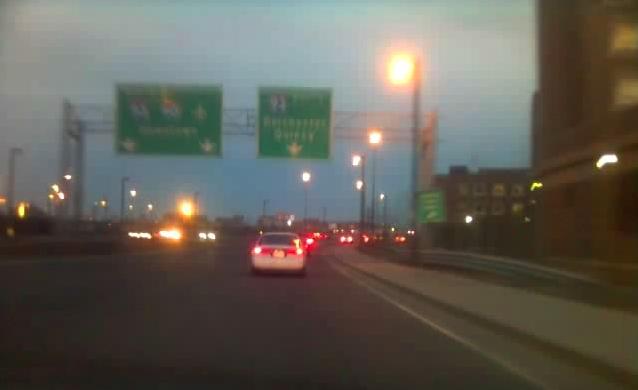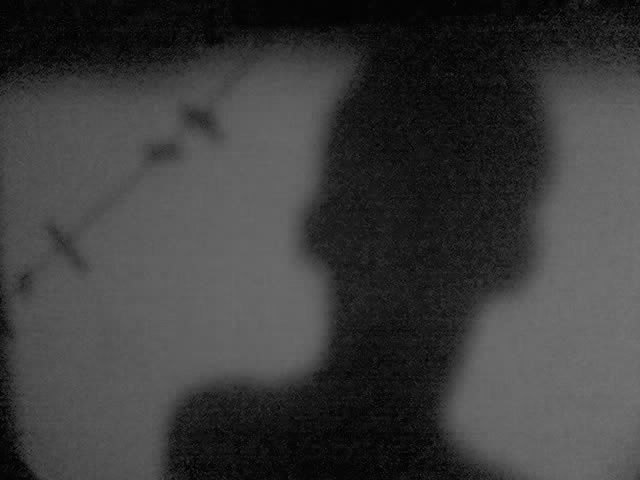Thursday, February 24, 2005
Snapshots from Boston - Draft
Architecture
 I hope we get a chance to see Trinity Church. It launched H.H. Richardson's career as an architect and it is one of my favorite buildings. You can always tell one of his buildings. They look medieval. He uses massive blocks of stone, often with multi-colored patterns in the details, like chevrons or checkerboards. They even named the style after him: Richardsonian Romanesque.
I hope we get a chance to see Trinity Church. It launched H.H. Richardson's career as an architect and it is one of my favorite buildings. You can always tell one of his buildings. They look medieval. He uses massive blocks of stone, often with multi-colored patterns in the details, like chevrons or checkerboards. They even named the style after him: Richardsonian Romanesque.
Although sunny, the day is frigid, with a constant gust of sharp wind. We are wearing our long underwear and we walk blocks in the cold to Copley Plaza, where Trinity Church is located. Inside, through towering doors with wrought-iron handles, it is a different world. Banks of steam radiators glow quiet heat beneath the twilight of intricate saints stained in deepest violet, ruby and emerald glass.
 We hear nothing but the quiet creak of antique wood. Is it my imagination? or in the air I see a faint mist as if the priests who have finished dispensing their incense have just a moment before shuffled quietly out behind a hidden door.
We hear nothing but the quiet creak of antique wood. Is it my imagination? or in the air I see a faint mist as if the priests who have finished dispensing their incense have just a moment before shuffled quietly out behind a hidden door.
Theater
I don't think my friend noticed this.
When the lights came up and as the actors, frozen a second before, launched into their first lines, one of the actors' eyes strayed and he looked at me. It was only for a split-second, but it threw me. It was not an empty glaze -- he had seen me, he had found me. Was I part of the play or he a part of the outside world?
It was disconcerting.
 We were in the second row, the stage surrounded on all four sides in a small diagonal by no more than fifteen seats. The play, the winner of several 'best new' awards, was about mental illness but was meant, it seemed, to raise questions about power and control within the vague confines of what defines mental stability.
We were in the second row, the stage surrounded on all four sides in a small diagonal by no more than fifteen seats. The play, the winner of several 'best new' awards, was about mental illness but was meant, it seemed, to raise questions about power and control within the vague confines of what defines mental stability.
There was plenty of heady dialogue. But once you figured it out, it became predictable. Of course the two psychologists disagree in a classic power struggle; of course we question what defines 'normal'; of course the patient helpless in the system reverses and becomes at one point the one in charge over his two bickering psychologists.
At the intermission, I overhear the stage manager speaking to a couple in the lobby.
"We asked two psychologists to read the play before we staged it," he is saying. "They were appalled. They felt it was unprofessional, unrealistic and an unethical portrayal."
After the intermission, the already small audience is smaller.
 "I think there are two super-models sitting across from us," I tell my friend. But they are among those who don't return after the intermission so we can't tell for sure.
"I think there are two super-models sitting across from us," I tell my friend. But they are among those who don't return after the intermission so we can't tell for sure.
"And what about that guy in the first row? Doesn't he look like a government official or something?" My friend doesn't recognize him. "Of course you do. You know, the guy who speaks on behalf of the french government or something."
No...?
Although sunny, the day is frigid, with a constant gust of sharp wind. We are wearing our long underwear and we walk blocks in the cold to Copley Plaza, where Trinity Church is located. Inside, through towering doors with wrought-iron handles, it is a different world. Banks of steam radiators glow quiet heat beneath the twilight of intricate saints stained in deepest violet, ruby and emerald glass.
Theater
I don't think my friend noticed this.
When the lights came up and as the actors, frozen a second before, launched into their first lines, one of the actors' eyes strayed and he looked at me. It was only for a split-second, but it threw me. It was not an empty glaze -- he had seen me, he had found me. Was I part of the play or he a part of the outside world?
It was disconcerting.
There was plenty of heady dialogue. But once you figured it out, it became predictable. Of course the two psychologists disagree in a classic power struggle; of course we question what defines 'normal'; of course the patient helpless in the system reverses and becomes at one point the one in charge over his two bickering psychologists.
At the intermission, I overhear the stage manager speaking to a couple in the lobby.
"We asked two psychologists to read the play before we staged it," he is saying. "They were appalled. They felt it was unprofessional, unrealistic and an unethical portrayal."
After the intermission, the already small audience is smaller.
 "I think there are two super-models sitting across from us," I tell my friend. But they are among those who don't return after the intermission so we can't tell for sure.
"I think there are two super-models sitting across from us," I tell my friend. But they are among those who don't return after the intermission so we can't tell for sure. "And what about that guy in the first row? Doesn't he look like a government official or something?" My friend doesn't recognize him. "Of course you do. You know, the guy who speaks on behalf of the french government or something."
No...?







